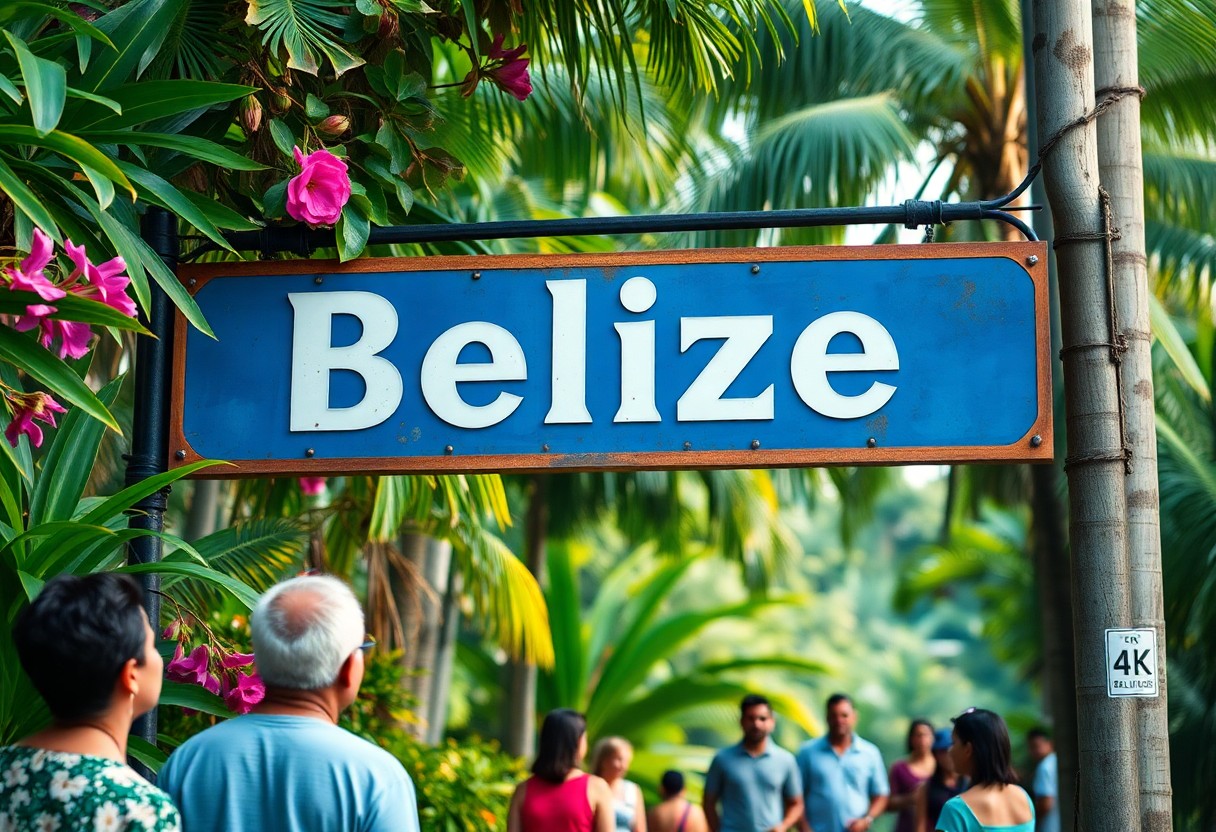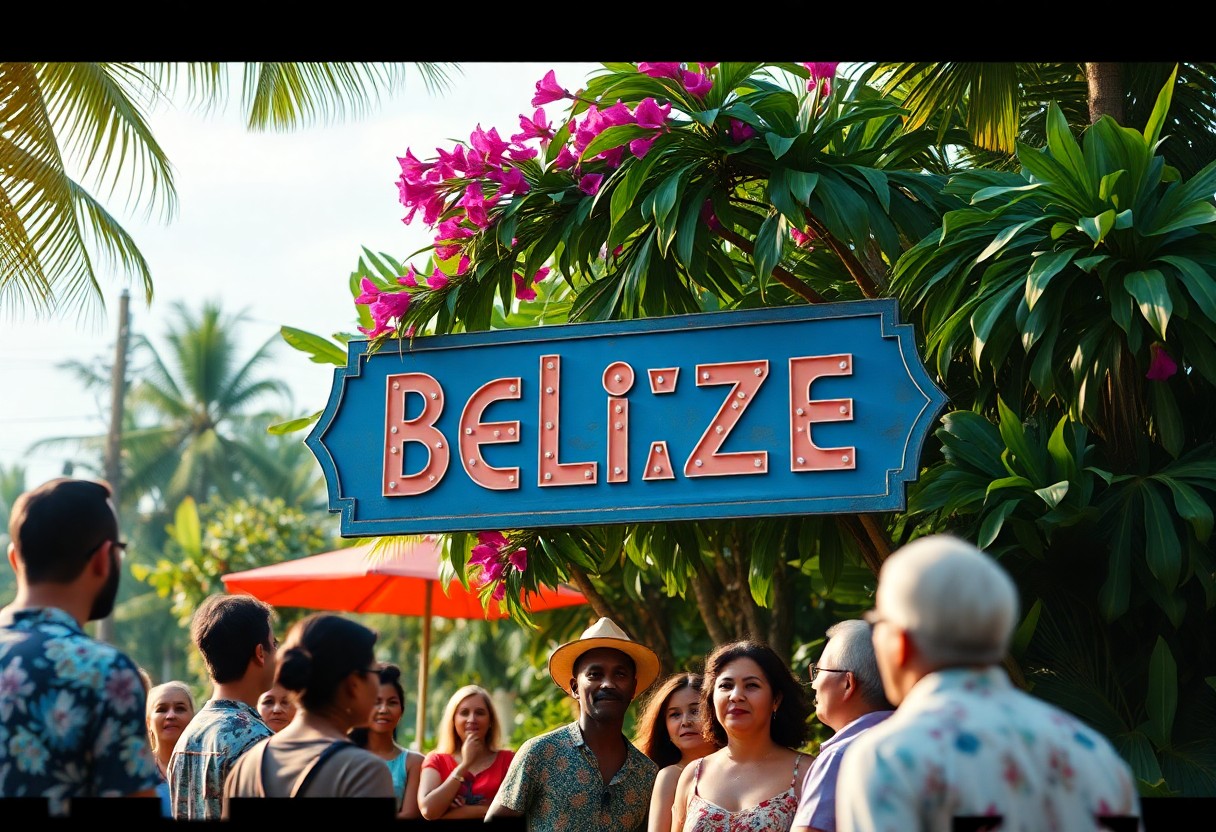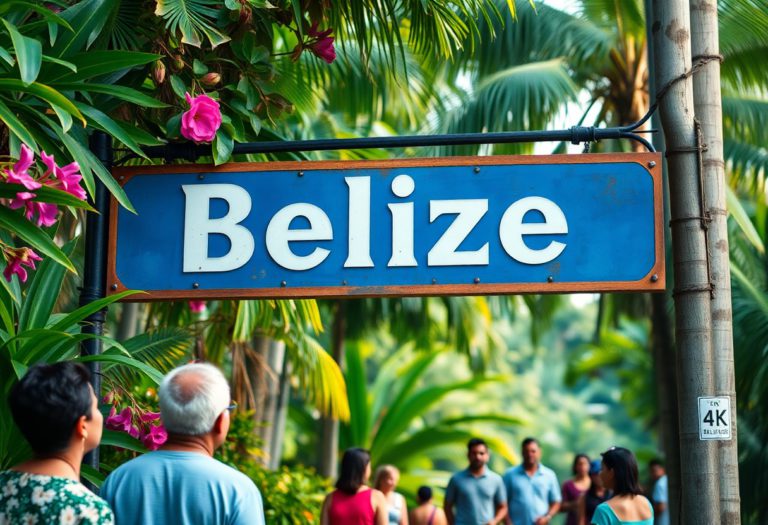Many individuals often find themselves perplexed when attempting to accurately pronounce the name of this stunning Central American nation. You may have come across various pronunciations, but the correct way to articulate it is “beh-LEEZ”, in contrast to the frequently mispronounced “buh-LIZE” or “beh-LIZE.” Your search for clarity concludes here; this comprehensive guide aims to assist you in confidently mastering the pronunciation of this captivating tropical paradise. By learning the correct pronunciation, you will not only enhance your communication skills but also show respect for the local culture and the beautiful languages spoken within the region.
Avoiding Common Mispronunciations: Essential Insights
Before we explore the nuances of pronouncing “Belize,” it is essential to recognize the most common mispronunciations that people frequently make. These errors can vary from minor variations to entirely incorrect versions, which may inadvertently indicate your unfamiliarity with the country’s rich linguistic heritage. By being aware of these common mistakes, you will empower yourself to pronounce the name more accurately and with greater confidence, thereby enriching your interactions with others and fostering a deeper understanding of Belize.
Distinguishing Between “Beh-leez” and “Beh-lize” for Effective Communication
If you often feel unsure about the proper pronunciation, you might find yourself torn between two widely recognized variations. The incorrect versions generally place emphasis on different syllables, leading to confusion among both native speakers and language enthusiasts alike. Recognizing these phonetic distinctions is crucial for effective communication and for bridging cultural divides, ensuring that you are understood and appreciated when discussing this beautiful nation and its unique identity.
Disproving the Incorrect Pronunciation of “Bee-lease”
This version deviates significantly from the authentic pronunciation, veering far from the true articulation of the name. This particular mispronunciation underscores a fundamental misunderstanding of the word’s linguistic origins and its cultural significance. Acknowledging these errors can deepen your appreciation for the language and the people of Belize, enriching your connection to this remarkable country and its diverse heritage.
Understanding pronunciation nuances such as “Behlize” adds an additional layer of complexity when striving for accurate articulation of the country’s name. Paying close attention to the subtle differences that define authentic pronunciation is vital for effective communication. Native speakers typically employ a specific intonation that captures the essence of the word, emphasizing the initial syllable with a gentle ‘beh’ sound, followed by a distinct ‘leez’ ending that aligns with local dialects and phonetic patterns.
Exploring the Historical Origins of the Name “Belize”
If you are fascinated by the linguistic origins behind the name “Belize,” you will uncover a captivating historical narrative that intertwines both indigenous and colonial influences. The etymology of the term is complex, reflecting the rich cultural tapestry that forms the identity of this Central American nation. By understanding the origins of the name, you not only enhance your connection to the place but also develop a deeper appreciation for its history, evolution, and the diverse influences that have shaped it.
Uncovering Potential Mayan Influences on the Name “Belize”
One intriguing theory posits that the name “Belize” may have origins in <a href=”https://xamanekbelize.com/belize-s-diverse-ethnic-heritage-and-society/”>Mayan linguistic heritage</a>, possibly deriving from the Mayan word “belix,” which translates to “muddy waters” or refers specifically to a river tributary. This linguistic connection emphasizes the deep indigenous heritage embedded within the nation’s naming conventions and cultural identity, highlighting the importance of understanding these origins in relation to contemporary Belize and its multifaceted history.
Examining the Impact of Colonial History on the Name
European interpretations have played a significant role in shaping the evolution of the name through interactions with Spanish and British colonial powers. This linguistic transformation occurred as European settlers encountered and documented the region, gradually adapting indigenous names and expressions to fit their own linguistic frameworks, resulting in notable changes to pronunciation over time.
Understanding Colonial Naming Practices and Their Dynamics
Variations in the name emerged during colonial eras, with Spanish explorers and British settlers providing different phonetic interpretations. The British colonization notably influenced the modern pronunciation, transforming indigenous phonetics into a more anglicized version that we recognize today as “Belize.” This evolution reflects the broader historical context of colonial influence on language and highlights the complex interplay between indigenous and colonial legacies that continues to shape cultural identity.

Effective Strategies for Perfecting Your Pronunciation of Belize
While mastering the pronunciation of Belize may initially seem daunting, there are numerous effective strategies that can help you sound more like a local. Consider incorporating these essential tips into your practice routine:
- Emphasize the initial syllable to enhance clarity and ensure correct pronunciation
- Utilize a soft “z” sound to guarantee accuracy in your speech
- Avoid common pitfalls associated with mispronunciation to enhance communication
By recognizing and mastering these nuanced sounds, you will empower yourself to articulate the country’s name with both confidence and authenticity, ultimately enhancing your communication with others and fostering positive interactions.
Phonetic Breakdown of “Belize”: A Clear Understanding
When dissecting the word phonetically, you will find that “Belize” is pronounced as “buh-LEEZ.” The emphasis is placed on the second syllable, creating a rhythmic and fluid sound that encapsulates the linguistic essence of this vibrant Central American nation and its cultural identity.
Comparative Analysis: Local Creole Pronunciation Versus Standard English
There are slight variations between the local Creole pronunciation and that of standard English when articulating Belize. However, the fundamental pronunciation remains relatively consistent across different linguistic contexts, providing a unique glimpse into the country’s linguistic diversity and the influences that shape it.
To better appreciate the linguistic nuances of Belize, it is crucial to recognize that local Creole may introduce subtle accent variations. Native speakers often blend elements of English, Spanish, and Creole, resulting in a rich linguistic tapestry that reflects the nation’s diverse cultural heritage and historical impacts on its language and identity.
Here’s the content for your blog post sections:
Key Influencers Shaping Pronunciation Practices
Unlike straightforward language rules, the pronunciation of “Belize” is influenced by numerous linguistic factors. Several critical elements impact how you articulate this name:
- Linguistic background of the speaker influences pronunciation
- Personal exposure to the language plays a significant role
- Regional dialect variations affect pronunciation
- Language learning experiences and practice contribute to proficiency
Recognizing these nuances will deepen your understanding of the complexities surrounding the pronunciation of this name while enhancing your overall communication skills and cultural appreciation.
In-Depth Exploration of Regional Pronunciation Variations
Pronunciation differences can be observed across various geographical regions. You may notice subtle distinctions between North American, Central American, and British English speakers. These regional variations can significantly influence how “Belize” is pronounced in everyday conversations, showcasing the rich diversity inherent in language and its evolution.
Understanding the Cultural Context Behind Pronunciation Variations
Cultural understanding plays a vital role in pronunciation variations. Your familiarity with Belizean history and its rich linguistic traditions can greatly influence how authentically you articulate the name, making it more meaningful and respectful in conversation.
Pronunciation transcends mere phonetic accuracy; it is a reflection of a rich cultural heritage. When you pronounce “Belize,” you engage with the country’s diverse linguistic landscape. Native speakers appreciate it when you approach the pronunciation with respect and a genuine interest in their cultural nuances, fostering deeper connections and understanding.
Analyzing the Benefits and Challenges of Accurate Pronunciation
To fully appreciate the importance of accurately pronouncing “Belize,” let’s delve into the advantages and potential challenges through a comprehensive breakdown.
| Advantages | Challenges |
|---|---|
| Demonstrates respect for linguistic diversity and cultural heritage | May lead to initial awkwardness in speech |
| Enhances clarity in conversations with native speakers | Could confuse some listeners unfamiliar with the pronunciation |
| Shows awareness of cultural nuances and traditions | Requires dedicated practice to master the pronunciation |
| Improves overall language proficiency and communication skills | Involves a small learning curve for new speakers |
Expressing Respect for Belizean Culture Through Language
If your goal is to genuinely show respect for Belizean culture, mastering the correct pronunciation is more than just a linguistic exercise. It reflects your commitment to understanding and honoring local linguistic traditions, fostering a deeper connection with the culture and its people. By doing so, you contribute to a more respectful and enriching interaction.
Promoting Clear and Effective Communication
Although pronunciation may appear to be a minor detail, accurate articulation is essential for preventing misunderstandings and facilitating effective communication with native speakers. By mastering the nuances of “Belize,” you will be equipped to navigate conversations with increased confidence and clarity, ensuring that your interactions are meaningful and culturally attuned.
By pronouncing the name correctly, you convey your cultural sensitivity and linguistic competence, leading to more meaningful interactions and deeper connections with the people of Belize and their vibrant culture.

Your Comprehensive Step-by-Step Guide to Pronouncing Belize
Now, let’s provide a clear breakdown of how to pronounce “Belize” with a straightforward, step-by-step guide. To assist you in mastering this pronunciation, here’s a detailed table that will walk you through each syllable:
| First Syllable | buh |
| Second Syllable | leez |
A Detailed Breakdown of Each Syllable for Clarity and Precision
Understanding the syllables is crucial for accurately pronouncing “Belize.” The first syllable, “buh,” is soft and brief, while the second syllable, “leez,” features a sharp, clear sound that should be emphasized for both accuracy and correctness in your speech.
Effective Techniques for Mastering Pronunciation
If you aim to perfect your pronunciation, begin by articulating each syllable separately before combining them. Engaging in slow, deliberate practice will gradually build your confidence over time and refine your pronunciation skills, allowing for smoother and more accurate speech.
You can utilize audio resources such as language learning applications or pronunciation videos to listen to native speakers. Listening and repeating is an excellent method for training your ear and mouth to produce the correct sounds. Additionally, consider recording yourself and comparing your pronunciation with that of native speakers to effectively monitor your progress and make necessary adjustments.
Final Insights on Accurately Pronouncing Belize
With this information, you now possess a deeper understanding of the nuanced pronunciation of Belize. Whether you opt for the American “BELL-eez” or the local Belizean “beh-LEEZ,” your choice reflects cultural awareness and linguistic respect. Armed with this knowledge, you can confidently engage in discussions about this Central American nation, appreciating the subtle variations in pronunciation. By mastering these pronunciation tips, you exhibit linguistic sensitivity and a genuine appreciation for regional speech patterns. Your newfound expertise will ensure you sound informed and culturally attuned when referencing this vibrant and beautiful country.
Frequently Asked Questions About Belize Pronunciation
What are the two primary ways to pronounce “Belize”?
The two widely accepted pronunciations are “buh-LEEZ” (most common in North America) and “beh-LEEZ” (preferred by many Belizean natives). Both pronunciations are linguistically acceptable, with the first variant being more prevalent in international contexts and casual conversations.
Are there pronunciation differences between English and Spanish speakers?
Yes, Spanish speakers typically pronounce Belize as “beh-LEE-seh,” featuring a softer ending, while English speakers generally pronounce it as “buh-LEEZ,” which has a more pronounced “z” sound. These linguistic variations arise from regional phonetic patterns that are inherent to each language and reflect their unique phonological rules.
What factors contribute to the existence of pronunciation variations for this country’s name?
Pronunciation differences stem from historical linguistic influences, including the impact of British colonial heritage, indigenous Mayan language roots, and Spanish colonial effects. The intricate linguistic landscape of the country contributes to multiple accepted pronunciation methods, reflecting its rich multicultural history and diverse influences.
The Article How to Pronounce “Belize” Correctly: A Quick Linguistic Guide appeared first on Belize Travel Guide
The Article Pronounce “Belize” Correctly: A Quick Linguistic Guide Was Found On https://limitsofstrategy.com





I really appreciate that you took the time to clarify the pronunciation of “Belize.” It’s one of those little details that can really change how people perceive you, especially when talking about a place rich in culture and beauty. I remember visiting Belize a couple of years ago, and hearing locals pronounce their country’s name correctly added a certain charm to our conversations.